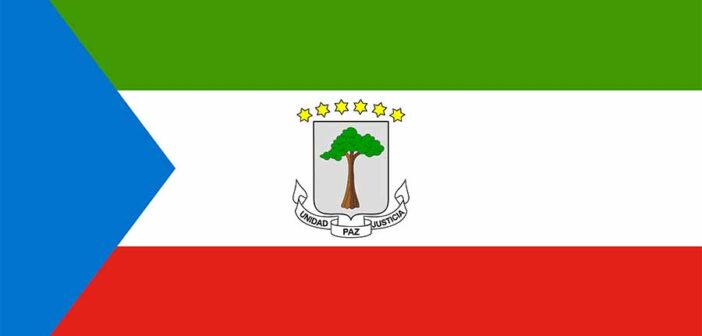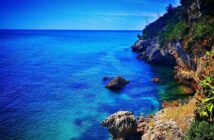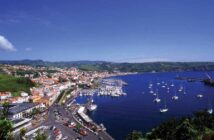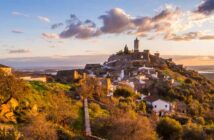Located in the heart of Central Africa, Equatorial Guinea is a hidden gem with a rich cultural heritage and natural wonders.
- Malabo: Equatorial Guinea’s capital city, Malabo, mesmerises visitors with its colonial architecture, lively markets, and waterfront. Be sure to stroll through Independence Square and visit the Malabo Cathedral.
- Monte Alen National Park: Nature enthusiasts will find paradise in Monte Alen National Park. This UNESCO Biosphere Reserve is home to an extensive array of wildlife, including gorillas, elephants, and bird species. Explore the park’s trails, waterfalls, and immerse yourself in the tropical wilderness.
- Bioko Island: Located off the coast, Bioko Island captivates visitors with its beaches, rainforests, and diverse marine life. Dive into the crystal-clear waters, explore hidden coves, and hike through the forests to discover landscapes.
- Bata: As the country’s largest city, Bata provides an authentic glimpse into Equatorial Guinea’s culture and history. Delve into the local markets, visit the Equatoguinean Cultural Centre, and wander along the Bata Harbour.
- Arena Blanca: For a paradise-like experience, head to Arena Blanca. This white sand beach, fringed by palm trees, is an spot for sunbathing, swimming, and unwinding amidst nature’s tranquility.
- Santa Isabel: Formerly known as Malabo II, Santa Isabel is an enchanting town located on Bioko Island. Explore its colourful streets, visit the colonial-era Church of San Carlos Borromeo, and soak up the local atmosphere.
- Moka Wildlife Centre: Situated on the mainland, the Moka Wildlife Centre provides a sanctuary for rescued animals indigenous to Equatorial Guinea. Visitors can observe and learn about various species, including crocodiles, birds, and primates, while supporting conservation efforts.
- Annobon Island: Embark on a journey to Annobon Island, a remote and untouched treasure. This isolated paradise is a haven for the adventurous visitor, offering hiking trails, volcanic landscapes, and beaches awaiting exploration.
- Luba: Luba is a coastal town famed for its sandy beaches and fresh seafood. Join local fishermen on their traditional boats, enjoy a beachside barbecue, or witness the festivities during the annual Luba Carnival.
- Pico Basilé: Nature lovers and thrill-seekers will find their delight in conquering Pico Basilé. This majestic mountain, reaching a height of 9,878 feet, rewards climbers with panoramic views of the surrounding rainforest and coastline.
Ten Off-The-Beaten-Track Locations:
- Mbini: Located on the mainland, Mbini offers a escape for nature lovers. Discover its hidden lagoons, meander through mangrove forests, and spot flora and fauna in this lesser-known destination.
- Rio Muni: Explore the lesser-known region of Rio Muni, characterized by dense rainforests and waterfalls. Take a boat ride along the Muni River, hike through jungle trails, and interact with local indigenous communities.
- Moca Caves: Venture into the depths of Equatorial Guinea by exploring the mysterious Moca Caves. These natural formations host stalactites and stalagmites, providing a underground adventure.
- Corisco Island: Embark on a boat trip to Corisco Island, a hidden paradise hosting beaches and coral reefs. Snorkel or dive beneath the crystal-clear waters to uncover a world of underwater beauty.
- Rio Campo Nature Reserve: Discover the untamed beauty of the Rio Campo Nature Reserve. Home to diverse ecosystems, including savannahs, swamps, and mangroves, this off-the-beaten-track destination brings you closer to Equatorial Guinea’s untouched wilderness.
- Batanga Beach: Situated in the southern part of the country, Batanga Beach offers a serene retreat away from the crowds. Enjoy the soft sands, savor fresh seafood, and soak up the coastal tranquility.
- Ureca: Ureca, a small fishing village, offers a glimpse into traditional Equatoguinean life. Witness the fishing activities, explore the local markets, and connect with the warm-hearted locals.
- Isla de Elobey: Sail away to Isla de Elobey, a secluded island cluster suitable for day trips. Admire the diverse bird species, relax on beaches, and uncover the island’s intriguing and troubled colonial past.




